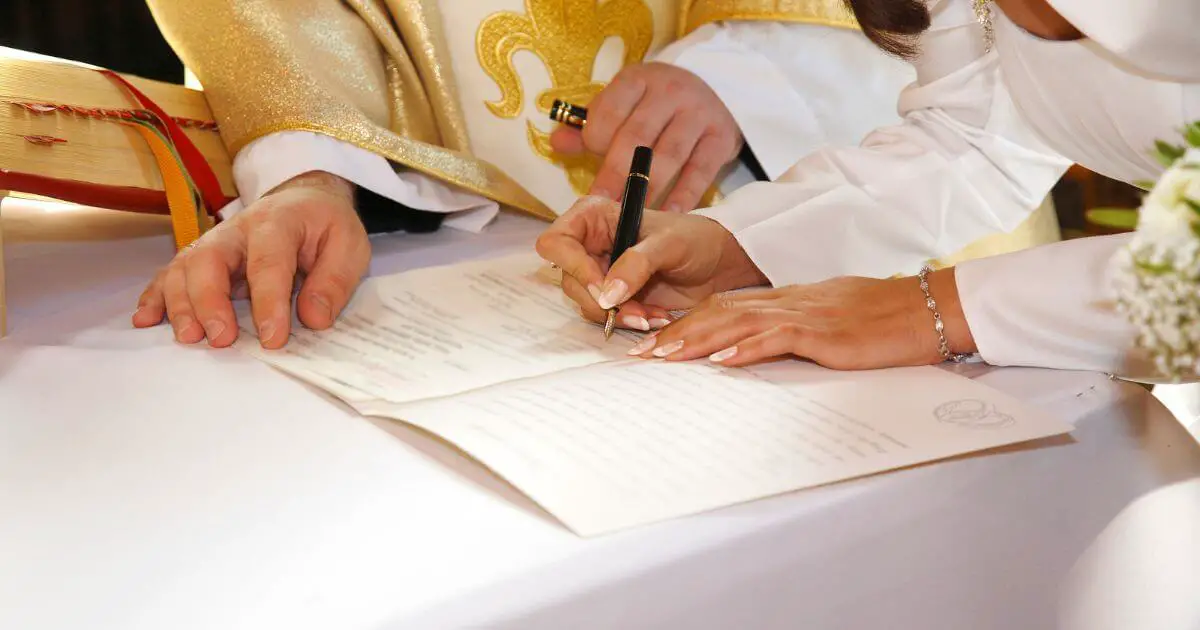How to Choose the Perfect Wedding Officiant in the Philippines: Tips and Guidelines in 2025

Your wedding day is one of the most important days of your life, and choosing the right wedding officiant is crucial to making it a memorable and meaningful experience. In the Philippines, there are several options for wedding officiants, from religious leaders to civil authorities. But how do you choose the right one for your special day? In this article, we’ll give you some tips and guidelines to help you make the right choice.
Types of Wedding Officiants in the Philippines
Before we dive into the tips for choosing a wedding officiant, let’s first take a look at the different types of officiants available in the Philippines.
Religious Officiants
Religious officiants are typically members of the clergy who are authorized to perform religious ceremonies. They can include priests, ministers, pastors, rabbis, and imams, among others. Religious ceremonies can be held in a church, chapel, or other religious venues, and can include traditional customs and practices that are specific to your faith.
Civil Officiants
Civil officiants are authorized by the government to perform legal marriages. They can include judges, mayors, and other government officials who have been given the power to solemnize marriages. Civil ceremonies can be held in a variety of locations, including courthouses, city halls, and other government buildings.
Guidelines for Choosing a Wedding Officiant
Now that you know the different types of wedding officiants available in the Philippines, let’s take a look at some guidelines for choosing the right one for your special day.
Determine the Type of Wedding Ceremony You Want
The first step in choosing a wedding officiant is to determine the type of ceremony you want. Do you want a religious ceremony, a civil ceremony, or a combination of both? This will help you narrow down your options and find an officiant who can perform the type of ceremony you desire.
Consider the Officiant’s Availability and Accessibility
Once you have an idea of the type of ceremony you want, it’s important to consider the officiant’s availability and accessibility. Some religious officiants may only be available on certain days or at certain times, while civil officiants may have strict schedules or require appointments. Make sure to inquire about their availability and accessibility early on in the planning process to avoid any scheduling conflicts.
Assess the Officiant’s Experience and Credentials
Another important factor to consider when choosing a wedding officiant is their experience and credentials. For religious officiants, this can include their ordination and any relevant training or certifications. For civil officiants, this can include their legal qualifications and any relevant experience in performing marriages. Don’t be afraid to ask for references or examples of previous ceremonies they have performed.
Inquire About the Officiant’s Fees and Policies
Wedding officiants may have different fees and policies, so it’s important to ask about these upfront. Some may charge a flat fee, while others may charge by the hour or have additional fees for travel or additional services. Make sure to clarify their fees and policies before booking to avoid any surprises later on.
Schedule a Meeting with the Officiant
Finally, it’s a good idea to schedule a meeting with the officiant before your wedding day. This will give you a chance to get to know them better and make sure that you feel comfortable with them performing your ceremony. It’s also an opportunity to go over any special requests or details about your ceremony.
Additional Considerations
In addition to the guidelines above, there are a few other considerations to keep in mind when choosing a wedding officiant.
Personal Preferences and Compatibility with the Officiant
Your personal preferences and compatibility with the officiant are also important factors to consider. Do you feel comfortable with the officiant? Do you share similar values and beliefs? These are all important questions to ask yourself when choosing an officiant.
Legal Requirements and Documentation
Make sure to also consider any legal requirements and documentation that may be necessary for your ceremony. For example, civil ceremonies may require certain documents or permits, while religious ceremonies may require pre-marital counseling or other requirements.
Cultural and Traditional Practices
Finally, it’s important to consider any cultural or traditional practices that you may want to include in your ceremony. Make sure to discuss these with your officiant to ensure that they are able to accommodate your requests.
Conclusion
Choosing the right wedding officiant can make all the difference in creating a memorable and meaningful wedding ceremony. By following these tips and guidelines, you can find the perfect officiant to help you make your special day unforgettable. Remember to consider your personal preferences and compatibility with the officiant, and don’t forget to clear all fees and policies before booking. With the right officiant by your side, you can create a beautiful and unforgettable wedding ceremony that you will cherish for years to come.
